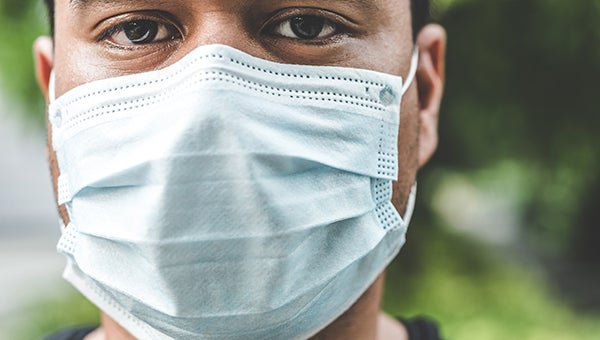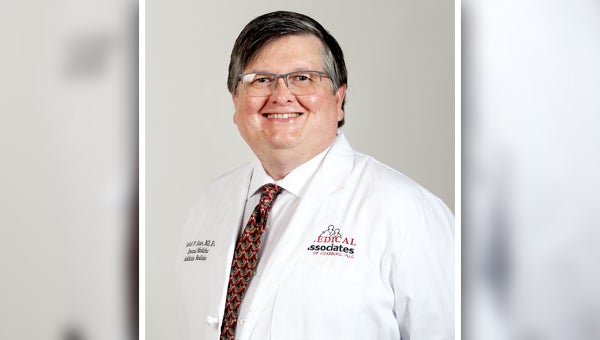If COVID-19 wasn’t scary enough: Parents worry about children with underlying conditions
Published 4:30 pm Wednesday, July 22, 2020

- Lindsey Gilliland gives her son, William, 7, an insulin shot. William was diagnosed with Type 1 diabetes in January. (Submitted Photo/The Vicksburg Post)
From the beginning, doctors warned the elderly and people with underlying health conditions were among the most vulnerable to COVID-19.
Those with diabetes fall into this category and, if they are infected, the virus could increase their risk for extreme illness and more severe complications.
William Gilliland, 7, was diagnosed with Type 1 diabetes in January, which has made the pandemic that much more worrisome for his parents.
“This has been a challenging time for all parents with the biggest fear being the unknown,” William’s mother, Lindsey, said. “And with William having Type 1 diabetes we know there would be additional challenges with the virus and recovery.”
Lindsey is not alone.
According to the associate director of the Diabetes Foundation of Mississippi, Irena McClain, about 1,600 children in Mississippi have either Type 1 or Type 2 diabetes. It is also estimated that about 373,000 Mississippians 18 years and older have diabetes, with about five percent of those with Type 1 diabetes and 95 percent with Type 2.
Wanting to learn how best to better protect her son from COVID-19, Lindsey called their endocrinology clinic to ask about guidelines that were recommended for those with diabetes.
“Unfortunately there weren’t any specific guidelines from the Diabetes Association other than to follow the Center for Disease Control’s guideline,” she said.
Hannah Byrd, who is the public relations and marketing coordinator for the Diabetes Foundation of Mississippi, said that while there are no specific guidelines, the foundation is trying to educate those with the disease about potential risks.
“We are trying to get the message out to people, especially those who have children with diabetes, that they need to be super careful,” Byrd said. “The staff of the foundation has been taking extra precautions both at work and at home since diabetes affects so many within our office, so we are providing educational information on diabetes and the coronavirus to teach others to do the same.”
McClain said there is no differentiation between Type 1 diabetes and Type 2 diabetes when it comes to how someone will respond if they contract COVID-19. Statistics, however, are showing adults with Type 2 diabetes, whose blood sugar is not in control, and who have comorbid conditions such as heart disease or asthma, do not fare as well.
“They will have a less optimal outcome with COVID,” McClain said. “This is a time for people to keep their blood sugar under control because blood sugar in good control is associated with better outcomes if you did get COVID.”
In an effort to prevent the spread of the virus and to protect those with underlying conditions like diabetes, McClain said, “We tell people to mask up. Tell your family and friends to mask up. And for those most vulnerable, try to have people do your shopping or have delivery. Minimize your contact with people outside your immediate family and make sure you are washing your hands and practicing social distancing.”
With the number of COVID-19 cases in the state increasing, McClain said people are just not doing what they need to do and they need to “take a step back.”
“We have rules for people. You have to consider the world doesn’t revolve around you,” McClain said. “You may be one of those people who have nothing wrong and are healthy, but remember the person next to you in the line at the grocery may be having chemo, they may have diabetes or they may have asthma, wear your mask. This is not a hoax. This is a reality.”






